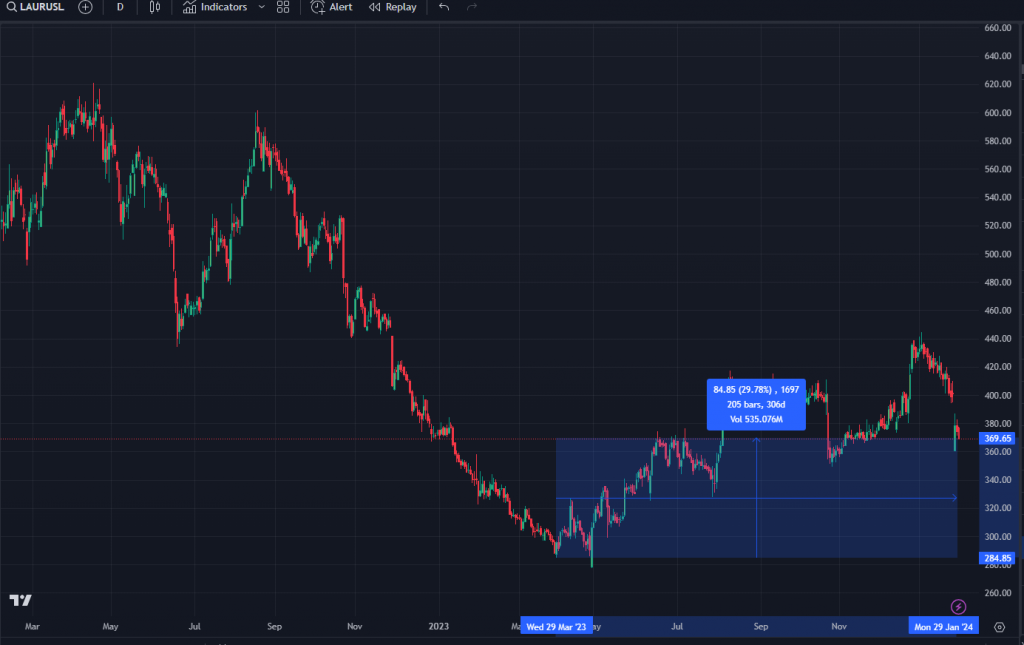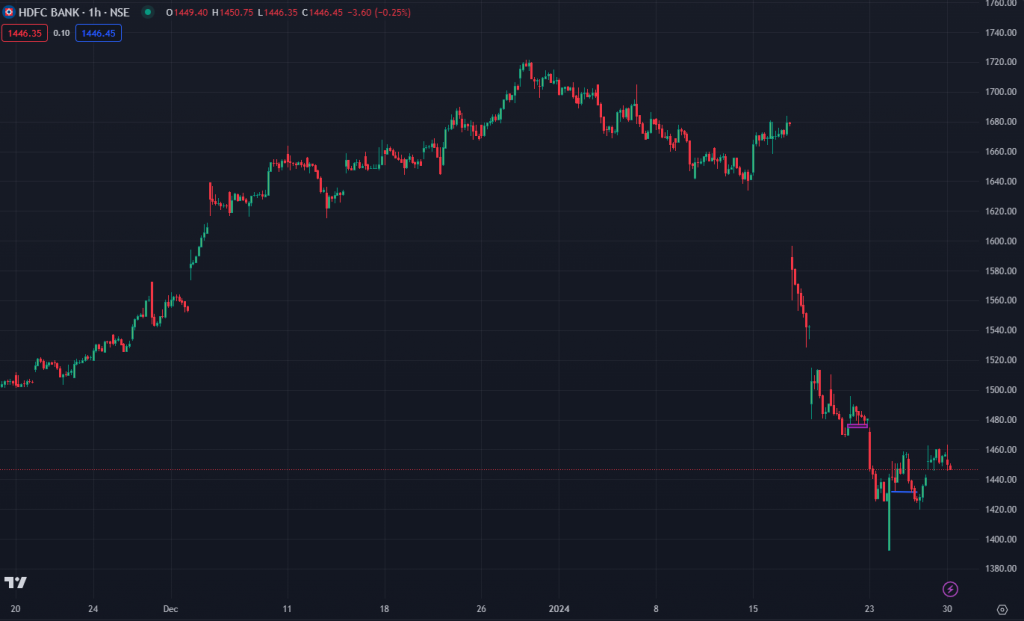Understanding the Disconnect Between Earnings and Stock Price Movement
As an investor, you may have come across situations where the trajectory of a company’s earnings is in stark contrast to the movement of its stock price. This phenomenon can be perplexing and create confusion, especially for those who follow fundamental analysis. In this article, we will explore the disconnect between earnings and stock price movement.
Let’s look at this tweet by Sahil Bhadviya, where he highlights the case of Lauras Labs.

The company’s earnings in the past nine months have fallen to 87 crores, a significant decline compared to the previous year’s earnings of 793 crores. However, despite this sharp decline, the stock price has risen by 30% in FY24 so far. This observation raises an important question: Why is the market not punishing the company for its poor earnings performance?

It is crucial to understand that the stock market’s valuation of a company is not solely based on its past earnings but also on its future potential. While earnings provide important insights into a company’s financial health, the stock market considers a wide range of factors, including future growth prospects, industry trends, market sentiment, and investor expectations.
From a momentum perspective, attempting to correlate earnings with stock price movement can be akin to driving a car with a blind spot. You assume that there is a direct correlation between the two, but the market’s behavior often proves otherwise. Investors who solely focus on earnings may miss out on opportunities or misjudge the future potential of a company.
To illustrate this point, consider the example of HDFC Bank. While its earnings have continued to rise, the market has punished the stock, causing its price to drop from 1700 to nearly 1400.

This discrepancy indicates that there may be other factors at play, such as the bank’s valuation compared to global banks or a course correction in progress. Thus, it becomes evident that earnings alone do not dictate a stock’s price movement.
The stock market has a mind of its own. It factors in not just earnings but also investor sentiment, market trends, and future growth potential. This independent behavior of the market highlights the importance of considering price movement alongside earnings when making investment decisions.
Following price movement instead of relying solely on earnings can provide valuable insights into a stock’s future trajectory. By focusing on the price, investors can identify potential positive developments or upcoming challenges that may impact a company’s earnings in subsequent quarters. This forward-looking approach can help investors stay ahead of the curve and make well-informed decisions.
Of course, it is essential to acknowledge that the market is not always infallible, and there can be instances where the price may be wrong or where circumstances change over time. However, it is crucial not to rely solely on earnings and hope for a reversal in stock price. Instead, it is advisable to give due consideration to the price trajectory and consider it as an indicator of future prospects.

If you have any questions, please write to support@weekendinvesting.com









